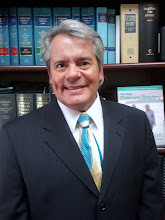The Centers for Medicare and Medicaid has announced the new Medicare premiums, deductibles, and coinsurances. The standard Medicare Part B premium is increasing by $5 to $104.90 a month, smaller than the $9 per month increase predicted earlier in the year.
Social Security recipients will receive a 1.7 percent increase in payments in 2013. Most people have their Medicare premiums deducted from their Social Security benefits. The smaller-than-expected hike means that most Medicare recipients will still receive a modest boost in Social Security benefits.
Here are all the new Medicare figures:
- Part B premium: $104.90/month (was $99.90)
- Part B deductible: $147 (was $140)
- Part A deductible: $1,184 (was $1,156)
- Co-payment for hospital stay days 61-90: $296/day (was $289)
- Co-payment for hospital stay days 91 and beyond: $592/day (was $578)
- Skilled nursing facility co-payment, days 21-100: $148/day (was $144.50)
As directed by the 2003 Medicare law, higher-income beneficiaries will pay higher Part B premiums. Following are those amounts for 2012:
- Individuals with annual incomes between $85,000 and $107,000 and married couples with annual incomes between $170,000 and $214,000 will pay a monthly premium of $146.90 (was $139.90).
- Individuals with annual incomes between $107,000 and $160,000 and married couples with annual incomes between $214,000 and $320,000 will pay a monthly premium of $209.80 (was $199.80).
- Individuals with annual incomes between $160,000 and $214,000 and married couples with annual incomes between $320,000 and $428,000 will pay a monthly premium of $272.70 (was $259.70).
- Individuals with annual incomes of $214,000 or more and married couples with annual incomes of $428,000 or more will pay a monthly premium of $335.70 (was $319.70).
Rates differ for beneficiaries who are married but file a separate tax return from their spouse:
- Those with incomes between $85,000 and $129,000 will pay a monthly premium of $272.70 (was $259.70).
- Those with incomes greater than $129,000 will pay a monthly premium of $335.70 (was $319.70).
The Social Security Administration uses the income reported two years ago to determine a Part B beneficiary's premiums. So the income reported on a beneficiary's 2011 tax return is used to determine whether the beneficiary must pay a higher monthly Part B premium in 2013. Income is calculated by taking a beneficiary's adjusted gross income and adding back in some normally excluded income, such as tax-exempt interest, U.S. savings bond interest used to pay tuition, and certain income from foreign sources. This is called modified adjusted gross income (MAGI). If a beneficiary's MAGI decreased significantly in the past two years, she may request that information from more recent years be used to calculate the premium.
Those who enroll in Medicare Advantage plans may have different cost-sharing arrangements. On average Medicare Advantage premiums are expected to rise $1.47 per month in 2013.
If you have any questions regarding your rights under Medicare, Medi-Cal (called Medicaid) or Aid and Attendance Benefits give my office a call and I will speak with you free of charge to see if I can help.
Best,
Vincent M. Casiano, Esq.
619-800-6820
CasianoLawFirm1@gmail.com

.jpg)















